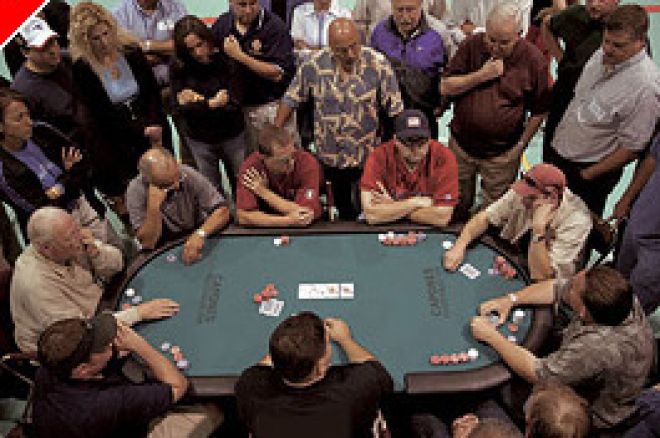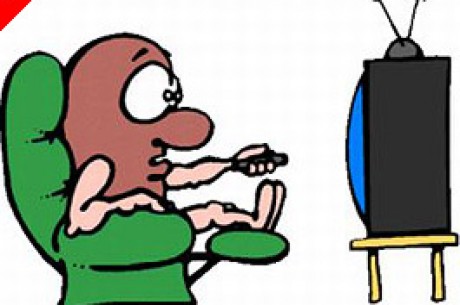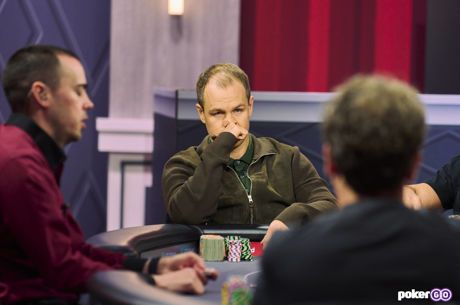The WPPA - What Happened?

With the advent of the World Poker Tour and the success of the World Series of Poker, there have been many ideas about expanding the world of tournament poker. The all-female LIPS Tour has been able to establish a major foothold by having their tournaments as a part of the WSOP Circuit stops and have been greatly successful. One of those that have not, however, was the World Poker Players Association.
Created in March of 2004, the World Poker Players Association was to be a breakthrough for all in the poker community. The WPPA was to function as a player's organization and provide tournaments that not only the members but anyone could participate in. It had grand ideas of making tournament poker truly for the players by taking into account their wants and had set out an ambitious schedule of tournaments that would crown their own champion.
Things could not have looked sweeter for the WPPA than when they signed on with the Game Show Network to be the broadcaster for their tournament stops. GSN saw the upswing in televised poker and recognized their need for such programming on their network. Thus was created the "Poker Royale" series that still continues on, in one form or another, today.
In October 2004, the WPPA crowned a champion at the Orleans in Las Vegas when professional James Van Alstyne captured the title over a tremendously challenging final table which held such other players as Kathy Liebert, world champion Carlos Mortensen, Paul Wolfe and Lee Markholt. In December, the show was broadcast on GSN to a generally good response.
By that same month, however, the wheels were apparently beginning to come off the WPPA. Another WPPA championship, held at the very same Orleans, only drew ten combatants. As 2005 started, there were the cancellations of tournament stops as well. It wasn't only in the tournament world where the failure of the WPPA was being seen.
On the Internet, when a website isn't updated or completely disappears, it is usually a sign of either a loss of interest or the disbanding of the subject of the site. The WPPA's website, wppa.info (where all news, information and sign ups to join the organization was contained) gradually declined to the point where new information on the group was seldom seen. As of now, the site has been completely removed from the Internet.
In an e-mail that I sent to the last hope of learning anything about the disappearance of the WPPA, I was able to contact one of the poker managers at the Orleans, Garrett Okahara, who was able to pass along some information. In that e-mail, Mr. Okahara simply stated that "the WPPA is no longer in existence. It's founder, Louis Asmo, is continuously working on similar ideas and promises to keep me informed of any developments."
The greatest question has to be what happened? The ideas presented by the WPPA as far as a player's group were quite refreshing, as the players would be sharing in any television profits from the broadcasting of the tournament events. It looked to be a group that was going to cater to the players and be their voice, which is something that has been universally recognized as a needed commodity.
The WPPA may have simply been a casualty of the constantly shifting nature of the world of tournament poker. It seems that, in the last two years, the explosion of high dollar tournaments has put a strain on everyone in the industry, from the casinos and dealers to the players and the media. At one time, you could count the $5,000 or $10,000 tournaments in a year on your hands and feet. Today there are, at the minimum, three major stops per month with buy-ins of that level and, when you add in the extra "made for television" events, it makes it a very busy lifestyle for the players to decide which ones to enter.
The WPPA may also have been a victim of its own aggressiveness. While creating the organization and securing the broadcasting of their tournaments were major hurdles, there may not have been enough done to make the organization palatable to the "average" player. Rather than building a solid foundation, they may have built the condominium on toothpicks, so to speak. While there seemed to be acceptance from some professionals, they lacked the solidity of numbers to continue the growth of the group and thus doomed it to failure.
Therefore, and without much fanfare for a group that started with such a bang, that the death of the World Poker Players Association is recounted. Maybe it will serve as a lesson in what to do and what not to do when looking at the world of poker. It is possible, as well, that Louis Asmo may come back, even stronger and wiser from this journey, with another organization that will make it. Only time and the winds of the sport of poker will tell.
Ed Note: Poker Stars aren't going anywhere. Check them out.








